Filter by
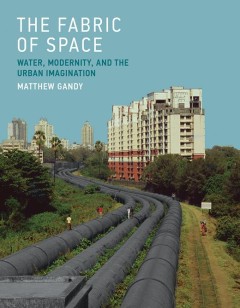
The fabric of space: Water, modernity, and the urban imagination
Water lies at the intersection of landscape and infrastructure, crossing between visible and invisible domains of urban space, in the tanks and buckets of the global South and the vast subterranean technological networks of the global North. In this book, Matthew Gandy considers the cultural and material significance of water through the experiences of six cities: Paris, Berlin, Lagos, Mumbai, …
- Edition
- -
- ISBN/ISSN
- 9780262321761
- Collation
- -
- Series Title
- -
- Call Number
- -
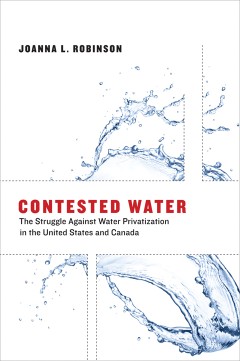
Contested water :the struggle against water privatization in the United State…
"Attempts by local governments to privatize water services have met with furious opposition. Activists argue that to give private companies control of the water supply is to turn water from a common resource into a marketized commodity. Moreover, to cede local power to a global corporation puts communities at the center of controversies over economic globalization. In Contested Water, Joanna Ro…
- Edition
- -
- ISBN/ISSN
- 9780262313612
- Collation
- 1 online resource.
- Series Title
- -
- Call Number
- -
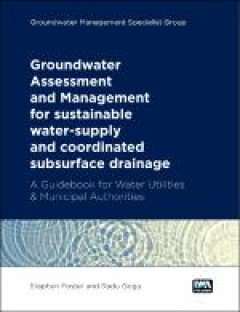
Groundwater Assessment and Management for sustainable water-supply and coordi…
Groundwater beneath cities is important. Water utilities and private abstractors use is it as a secure source of water-supply and municipal authorities have to cope with it when planning sanitation and using underground space for building and transportation infrastructure, but all too often neither have a comprehensive understanding. This Guidebook aims to highlight what water utilities and mun…
- Edition
- -
- ISBN/ISSN
- 9781789063103
- Collation
- -
- Series Title
- -
- Call Number
- -
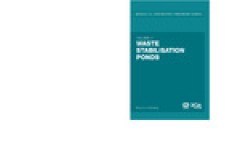
Waste Stabilisation Ponds
"Waste Stabilisation Ponds is the third volume in the series Biological Wastewater Treatment. The major variants of pond systems are fully covered, namely: facultative ponds anaerobic ponds aerated lagoons maturation ponds The book presents in a clear and informative way the main concepts, working principles, expected removal efficiencies, design criteria, design examples, construction aspects,…
- Edition
- -
- ISBN/ISSN
- 9781843391630
- Collation
- -
- Series Title
- -
- Call Number
- -

Resilience of Water Supply in Practice: Experiences from the Frontline
Water Resilience in Practice is co-edited by two experienced water sector professionals and reviews resilience in water supply service delivery in the form of a series of case studies from different economic contexts – ranging from low-income and fragile states to upper-income countries. It documents real experiences and reflects on the initiatives different service providers apply to strengt…
- Edition
- Ed. 1
- ISBN/ISSN
- 9781789061611, 9781789061635
- Collation
- 210
- Series Title
- -
- Call Number
- 628.1 RES r
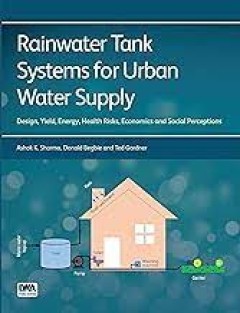
Rainwater Tank Systems for Urban Water Supply Design, Yield, Energy, Health …
Rainwater tank systems have been widely adopted across the world to provide a safe local source of water in underdeveloped rural areas, and as a substitution for mains water for non potable end uses in water stressed urban areas. They also provide flood control in monsoonal climates like Korea or in combined sewer systems like in Germany. The importance of these systems in cities has grown, as …
- Edition
- -
- ISBN/ISSN
- 9781780405360
- Collation
- -
- Series Title
- -
- Call Number
- -
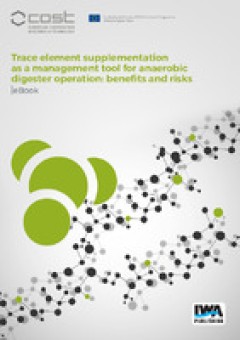
Trace element supplementation as a management tool for anaerobic digester ope…
" This guide is intended for use by industry stakeholders, decision-makers and digester operators in navigating the topic of trace element (TE) supplementation as a management tool for anaerobic digester operation. The subject is the application of TE, and supplementation regimes in anaerobic waste-conversion biotechnologies, such as biogas digesters. TE is a term used to include a wide range o…
- Edition
- -
- ISBN/ISSN
- 9781780409429
- Collation
- -
- Series Title
- -
- Call Number
- -

Global Water Issues and Insights
This book brings together some of the world’s leading water researchers with an especially written collection of chapters on: water economics; transboundary water; water and development; water and energy; and water concepts.
- Edition
- -
- ISBN/ISSN
- -
- Collation
- -
- Series Title
- -
- Call Number
- -
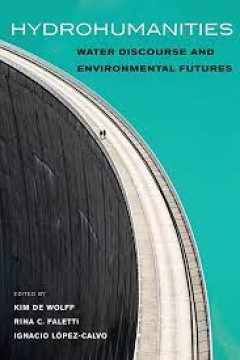
Hydrohumanities Water Discourse and Environmental Futures (Edition 1)
A free open access ebook is available upon publication. Learn more at www.luminosoa.org. Discourse about water and power in the modern era have largely focused on human power over water: who gets to own and control a limited resource that has incredible economic potential. As a result, discussion of water, even in the humanities, has traditionally focused on fresh water for human use. Today, cl…
- Edition
- -
- ISBN/ISSN
- 9780520380462
- Collation
- -
- Series Title
- -
- Call Number
- -
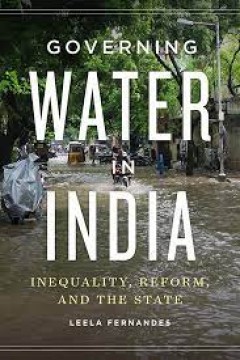
Governing Water in India Inequality, Reform, and the State
Intensifying droughts and competing pressures on water resources foreground water scarcity as an urgent concern of the global climate change crisis. In India, individual, industrial, and agricultural water demands exacerbate inequities of access and expose the failures of state governance to regulate use. State policies and institutions influenced by global models of reform produce and magnify …
- Edition
- -
- ISBN/ISSN
- 9780295750446
- Collation
- -
- Series Title
- -
- Call Number
- -
 Computer Science, Information & General Works
Computer Science, Information & General Works  Philosophy & Psychology
Philosophy & Psychology  Religion
Religion  Social Sciences
Social Sciences  Language
Language  Pure Science
Pure Science  Applied Sciences
Applied Sciences  Art & Recreation
Art & Recreation  Literature
Literature  History & Geography
History & Geography